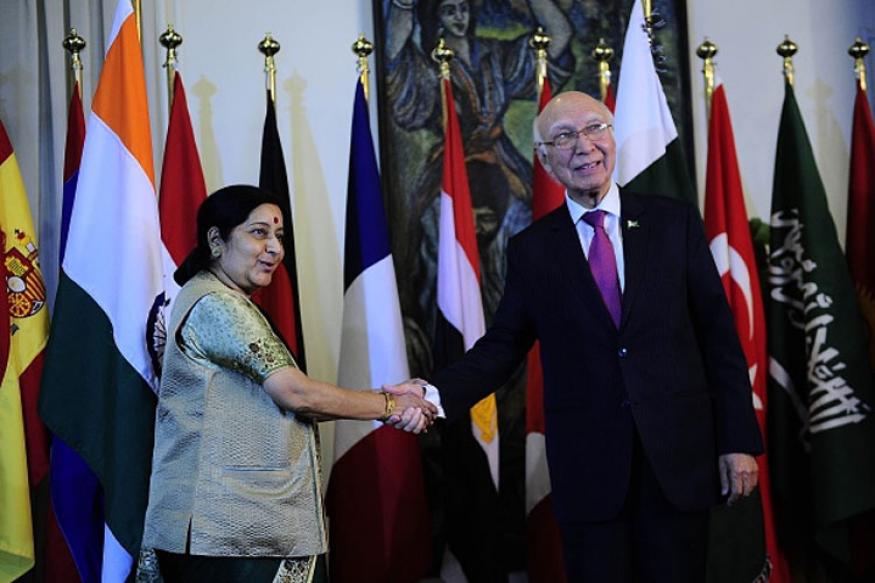
The release of the 26/11 mastermind Zaki-Ur-Rehman Lakhvi on April 10 from Adiala Jail in Rawalpindi has once again cast a shadow on engagement between India and Pakistan. India expressed its displeasure with the release of Lakhvi through India’s High Commissioner in Pakistan TCA Raghavan’s meeting with Pakistan’s Foreign Secretary. Lakhvi had been granted bail in December 2014, but the Pakistan Government kept him under detention through the Security Act.
The Punjab government in Pakistan challenged the release of Lakhvi, stating that he had been let off in spite of serious evidence against him. The Punjab government also stated that his release would affect the Mumbai trials.
Lakhvi’s release comes a little over a month after Indian Foreign Secretary S Jaishankar’s visit to Pakistan as part of his SAARC Yatra, where he is believed to have listed some of India’s concerns with regard to the trial of the perpetrators of 26/11. The visit was also looked at as a way of resuming dialogue between both countries. Many argue that PM Modi had resumed dialogue under duress from the United States. Others believe that Modi’s decision to resume dialogue was due to the pressure of domestic politics and the alliance with the PDP in Jammu and Kashmir.
It should also be mentioned that in spite of the cancellation of talks in August, the governments of both countries have maintained a degree of civility. In the aftermath of the dastardly Peshawar attacks, Modi called his counterpart Nawaz Sharif and he appealed to schools all over India to maintain two minutes of silence. Only a few days back, both India and Pakistan exhibited grace during the Yemen crisis. A Pakistani Navy ship rescued 11 Indians stranded in Yemen, bringing them to Karachi, and then flew them to India on April 8th. Both the Indian Prime Minister and Foreign Secretary appreciated Pakistan’s gesture. India’s PM tweeted: “I welcome our 11 citizens who have returned from Yemen with help from Pakistan. Thank you, PM Nawaz Sharif, for your humanitarian gesture.”
While both countries have offered help to each other during crises, such praise is rare.
PM Modi categorically stated in a recent interview with the Hindustan Times, which happened to be his first ever since he had taken office, that he is not averse to dialogue with Pakistan in a terror free atmosphere: “We remain open to bilateral dialogue with Pakistan on all outstanding issues in an environment free from terrorism and violence. The Shimla Agreement and Lahore Declaration have to be the basis for going forward.”
Does the release of Lakhvi mean that India and Pakistan are back to square one? Does it mean that there are slim chances of the resumption of any meaningful engagement?
While even the best of soothsayers cannot predict the India-Pakistan relationship, both New Delhi and Islamabad certainly need to take some bold steps in putting the relationship back on track. For this to happen, both governments will need to stop playing to the gallery. India should not shy away from engaging with Pakistan due to pressure from hawks both within the establishment and outside. Pakistan needs to realize that barring the punishment of the perpetrators of 26/11, there is no chance of restoring relations. Pakistan needs to be serious about punishing the perpetrators of the Mumbai attacks and address India’s concerns about terrorism emanating from Pakistani soil. Simply remaining in denial or using the alibi of Pakistan being a victim of terror is not likely to cut any ice. After the Peshawar attacks there were great hopes for both countries to find common ground against terror, but moves such as the release of Lakhvi suggest that these were short lived.
It is useful to look at the role of the PMs specifically in this context. For Modi, it is important to ensure that hotheads in his party and its affiliates do not have a veto over the government’s Pakistan policy. Not only does Modi have a strong majority, but he also has exhibited immense flexibility in foreign policy in dealing with other countries. Modi seemed to be open to doing so with Pakistan as well. There is a danger, however, that with the release of Lakhvi, the space for Modi to show flexibility vis-à-vis Pakistan has been considerably reduced.
For Sharif, it is important that the military does not drive policy towards India. Sharif needs to assert himself against the army, like he had done during the late 1990s. It is important that he sets the agenda on India, though this seems highly unlikely, since his influence has been weakened. He has recently become more dependent upon the army due to the latter’s role in anti-terror operations.
Both sides will have to display a degree of boldness. Otherwise we are in for yet another Indo-Pak stalemate.
***